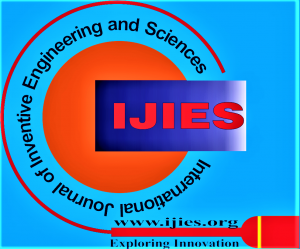![]()
The Costly Journals Index: An Importance for Future Research
V Ajay Sarma1, G Thippanna2, R Nagesh3, B Chandra Sekhar4
1V Ajay Sarma, Assistant Professor, Department of CSE, Dr KV Subbareddy Institute of Technology, Opp. Dupadu Railway Station, Kurnool (Andhra Pradesh), India.
2Dr. G Thippanna, Professor, Department of CSE – AIML, Dr KV Subbareddy Institute of Technology, Kurnool (Andhra Pradesh), India.
3R Nagesh, Assistant Professor, Department of CSE -AIML, Dr KV Subbareddy Institute of Technology, Kurnool (Andhra Pradesh), India.
4Dr. B Chandra Sekhar, Assistant Professor, Department of Mathematics, St. Joseph’s Degree College, Kurnool (Andhra Pradesh), India.
Manuscript received on 25 October 2025 | Revised Manuscript received on 07 November 2025 | Manuscript Accepted on 15 November 2025 | Manuscript published on 30 November 2025 | PP: 32-36 | Volume-12 Issue-11, November 2025 | Retrieval Number: 100.1/ijies.K113112111125 | DOI: 10.35940/ijies.K1131.12111125
Open Access | Editorial and Publishing Policies | Cite | Zenodo | OJS | Indexing and Abstracting
© The Authors. Blue Eyes Intelligence Engineering and Sciences Publication (BEIESP). This is an open-access article under the CC-BY-NC-ND license (http://creativecommons.org/licenses/by-nc-nd/4.0/)
Abstract: Increased charging from publishers and access points to databases like Scopus, Web of Science, and even PubMed is bound to change the economic dynamics of information dissemination and its affordability. The Costly Journals Index (CJI) is introduced in the article as a method for determining the costs to authors and their institutions of publishing. It integrates quantitative and qualitative analysis of themes such as article processing, subscriptions, author payments, and university budgets worldwide. The study of these dimensions reveals inequities, academics’ participation and contributions, and/or shifts in the research’s focus. The author analyses the relationship between the cost of publishing research and its impact. The research showed that greater results are not tied to higher publishing costs. The author reviews the implications of such a study for future research, for research on academic publishing, for the CJI’s impact on open access, and for the effects of the Nepotism Index in academic discourse. It emphasises the need to balance equity and prestige and to regulate inequitable access while sustaining the heterogeneity, originality, and authenticity of the research. The primary objectives are to broaden access to research for all, not just the privileged, and to inspire more publishers to/adopt such a model.
Keywords: Expensive Index of Journals, Open Index of Journals, Impact Factor Regarding the Journals.
Scope of the Article: Data Analytics
